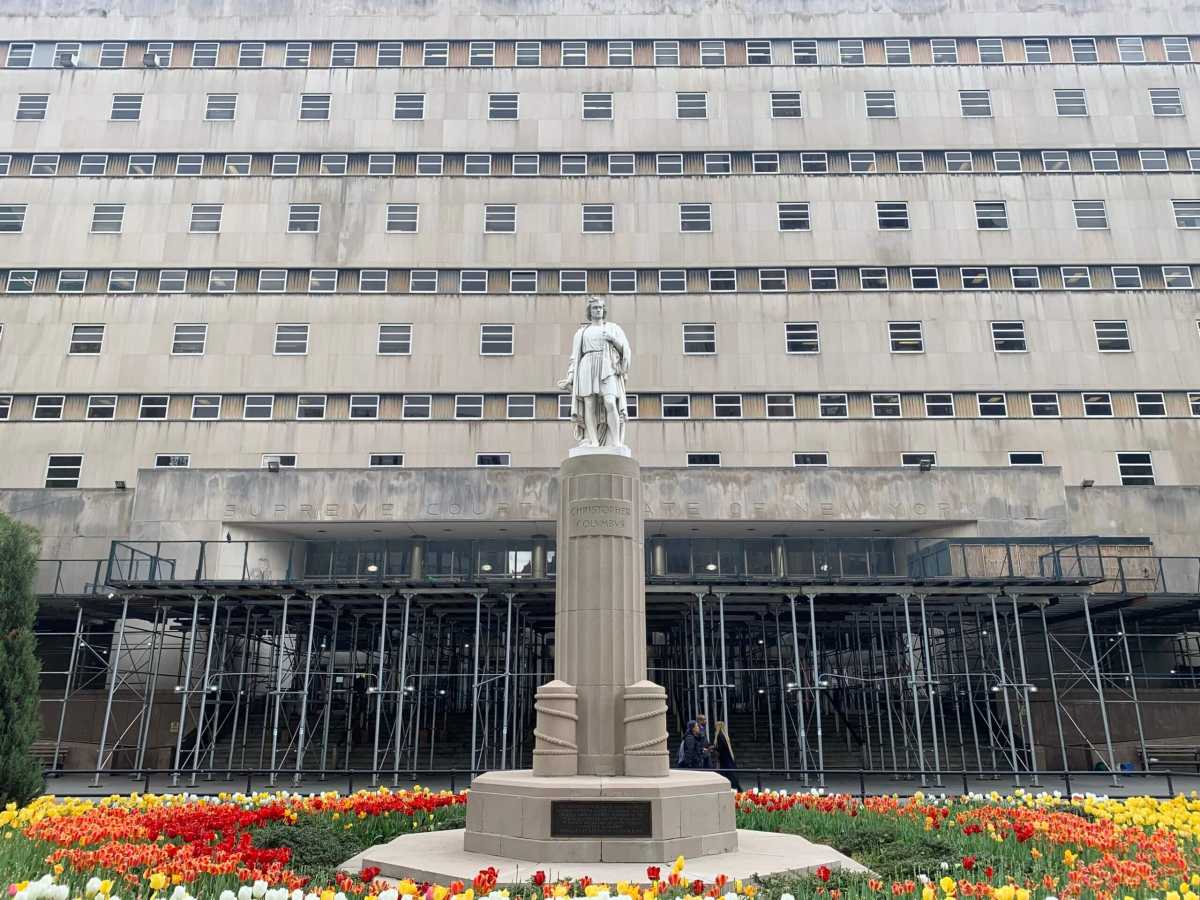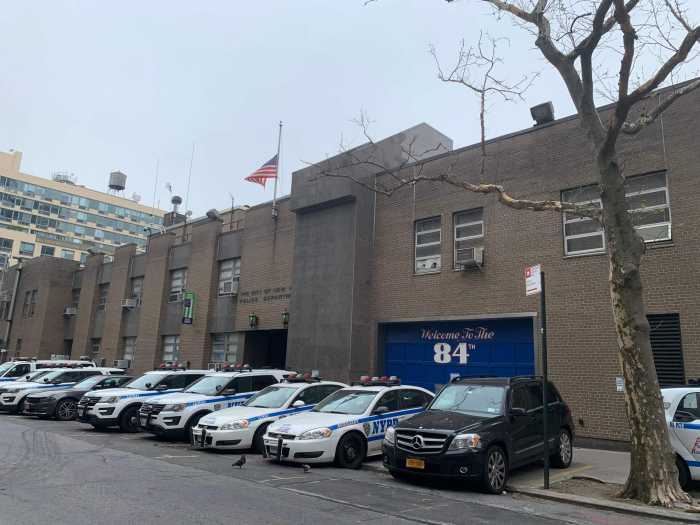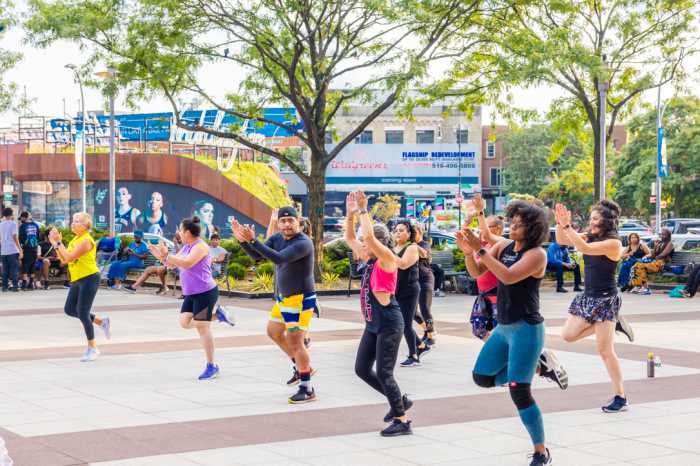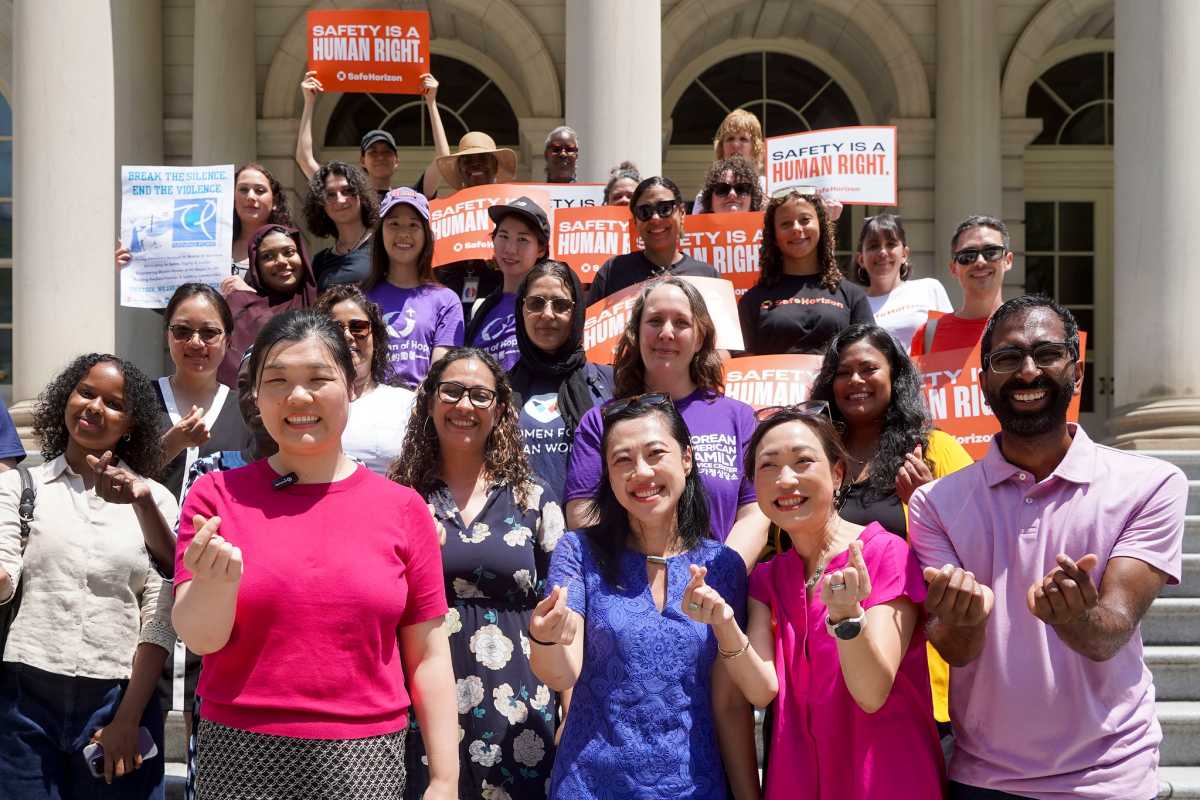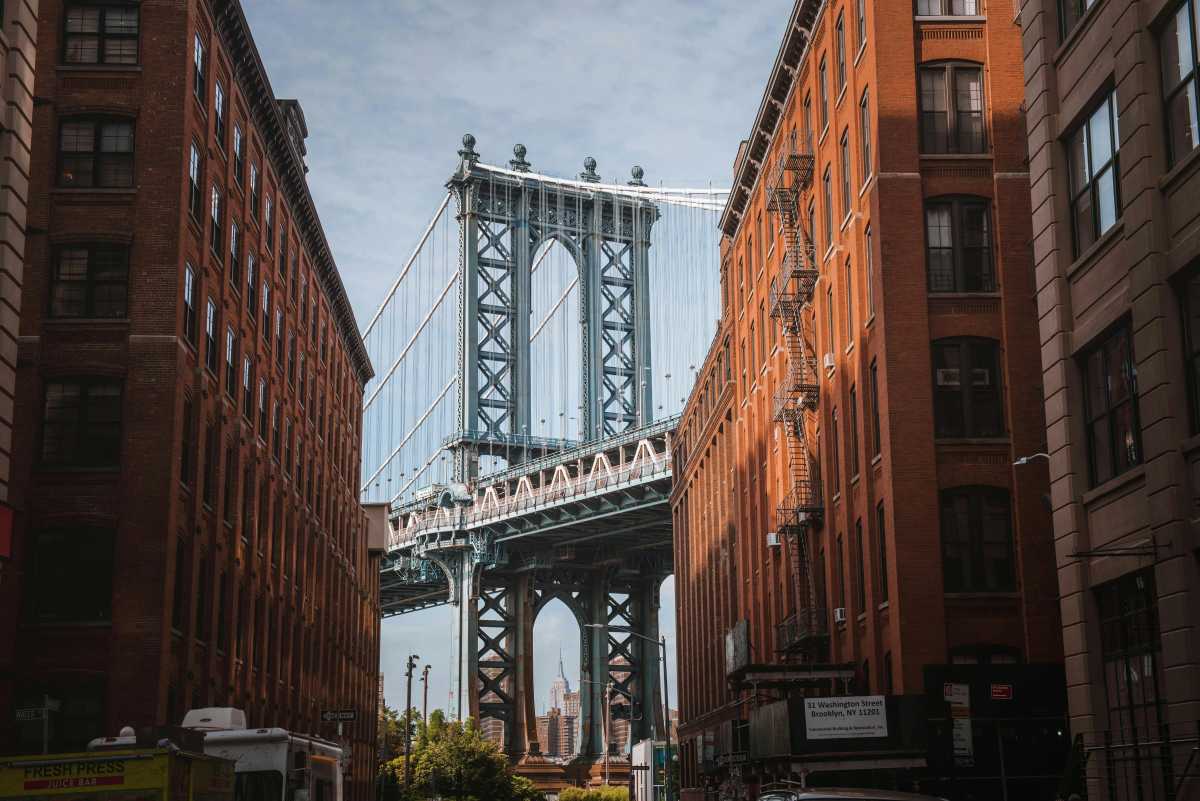If the scaffolding surrounding the Brooklyn Supreme Court building on Adams Street was a person, it would be preparing to finish its sophomore year of high school — and the city spends more money each year keeping the structure propped up than it does on the average public school student.
The scaffolding — or “sidewalk shed,” as it’s more formally known — has been wrapped around the courthouse at 360 Adams Street since 2007. Since fiscal year 2022, the city has been paying the private contractor who actually owns the scaffolding a tidy $5,635 per month to maintain it.
That’s $67,620 per year. In contrast, the city is expected to spend $38,000 each on public school students next year — a historic high. In 2019, the monthly fee was $4,340, as Brooklyn Paper reported at the time — DCAS said that the department added more scaffolding “to address safety conditions” in FY22, hence the increased costs.
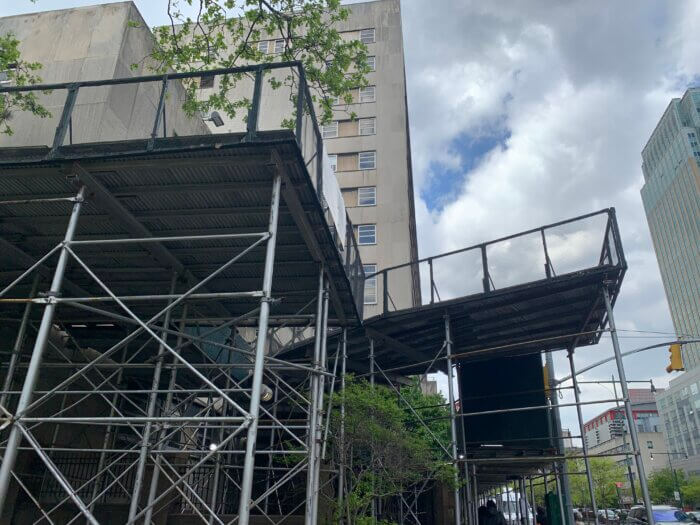
Through the years, the city has partnered with multiple contractors to rent the scaffolding — the most recent permit was issued to Amityville-based Eagle Scaffolding Services, though DCAS did not confirm the company is the current contractor.
City laws require sidewalk sheds be erected around buildings with façade issues — like crumbling bricks or aging cement work — to keep passerby safe from falling debris until the issue is resolved. However, the sheds often end up staying in place for years — even decades — while building owners delay making repairs.
The courthouse has racked up a number of Department of Buildings violations related to the condition of the façade — agency inspectors issued violations in 2008, 2012, 2018, and 2022.
According to city records, none have been resolved, so the scaffolding has to stay up. DCAS is responsible for making the necessary repairs. The most recent safety report notes that the stone on the tall facade is cracked, as is the brick parapet atop the building, and that the granite blocks that make up the external wall are shifting. Similar issues are noted in past reports.
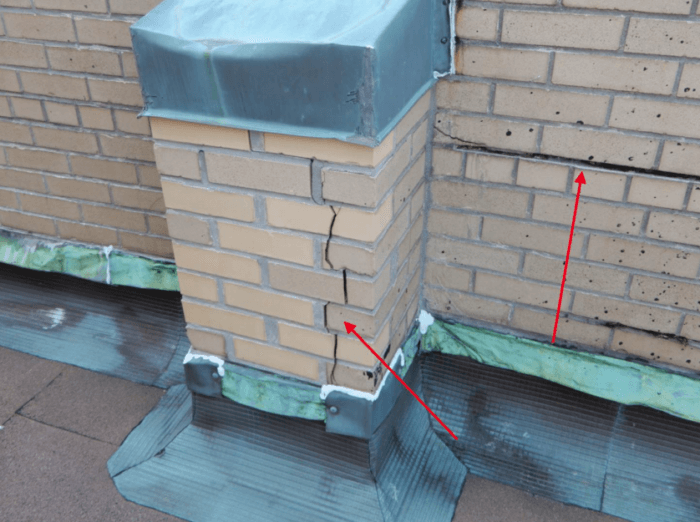
Repairs are expected to cost somewhere around $18 million, according to the Department of Design and Construction. The department is working with its design partner to investigate the façade — including the steel structure that supports the exterior stone panels — and plans to begin construction in 2025.
The scaffolding itself has been cited more than once — in 2021, the DOB noted that the sidewalk shed was not up to city standards on two separate occasions, a violation that usually comes with a $2,400 fine.
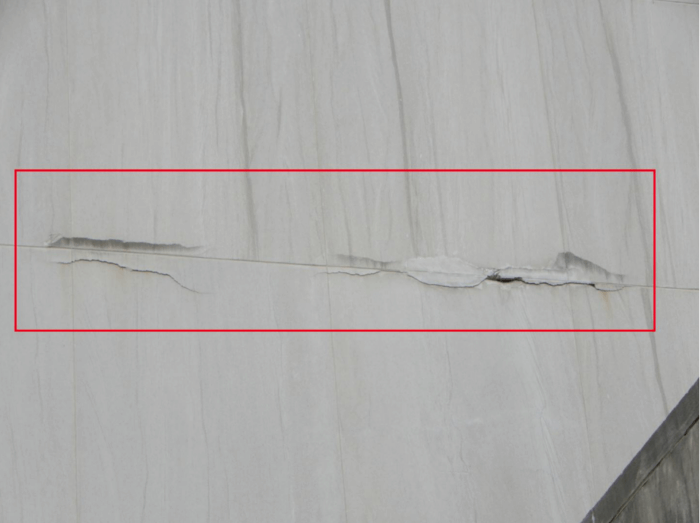
On both occasions, the city’s Office of Administrative Trials and Hearings waived the fines.
Last month, Manhattan Borough President Mark Levine and Council Member Keith Powers released a report titled “Shed the Shed” as part of a joint effort to start removing sidewalk sheds en masse. According to city data, there are 8,903 sidewalk sheds currently standing across New York City — stretching a combined 2 million linear feet.
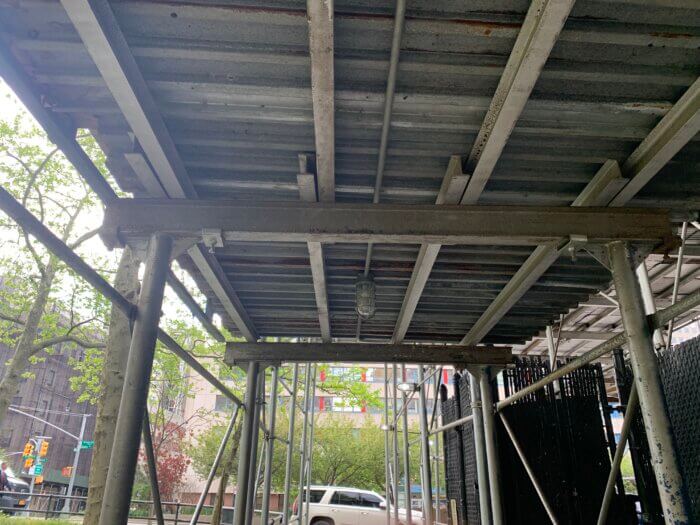
The report identifies the city as one of the worst offenders for long-term sidewalk shed offenders, with scaffolding on city-owned property often standing for over a year.
Levin and Powers recommend launching a task force to find out just why the city has so much trouble taking care of their buildings and removing sidewalk sheds, and increasing fines and penalties on building owners who don’t act quickly enough.
The council member introduced a series of bills in the city hall last month relating to cracking down on sidewalk sheds — with support from a number of Brooklyn council members, including Lincoln Restler, who represents Downtown Brooklyn — where the infamous courthouse scaffolding stands.


